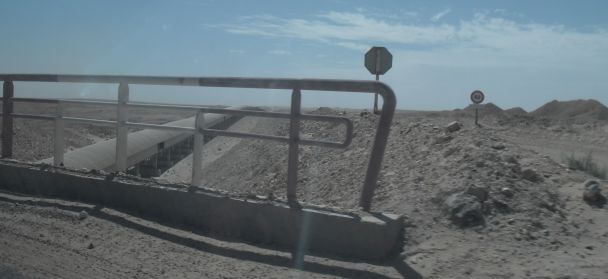
As Continental renegotiates its contract with Morocco's national phosphate company, it is still not clear whether the German group intends to limit its operations to Morocco proper or extend them into occupied Western Sahara.
UPDATE, 05.06.2020: Continental has replied to the letter from Western Sahara Resource Watch, elaborating further on the type of activity it has undertaken on the conveyor belt.
UPDATE, 31.03.2020: Western Sahara's liberation movement Frente Polisario on 30 March wrote to Continental, demanding the company to not prolonging its contract with OCP in Western Sahara. Polisario underlined the legal risk for the company if deciding to pursue further involvement with the mining operation in the territory.
The Hannover based company Continental has stated that it is currently renegotiating a new agreement with OCP, Morocco's state-owned phosphate company that also illegally exploits the phosphate reserves of occupied Western Sahara. But for which country do the negotiations take place? For Morocco only - or also for Western Sahara?
In a letter sent today, Western Sahara Resource Watch (WSRW) has asked Continental to clarify the scope of its negotiations.
Through its current deal with OCP, Continental's subsidiary ContiTech services the conveyor system that is used to transport phosphate rock from the Bou Craa mines over a distance of 100 kilometers to the port of El Aaiun, the capital of the occupied territory. From there, Western Sahara's conflict mineral is shipped out to a number of international clients that grows smaller and smaller, as a result of rising pressure from investors over human rights concerns.
Continental's current contract with OCP expires in June this year. In December 2019, WSRW reached out to encourage the company to seize the opportunity of renegotiations to limit its contractual operations to Morocco proper. But in its response of 10 January 2020, the company responded that it could not comment on ongoing negotiations.
Last week, the company responded along the same lines to a group of German NGOs that voiced their criticism over the company's involvement in occupied Western Sahara. The company also added that its contract with OCP was not a maintenance contract, but rather a supply contract.
WSRW has now asked the company to clarify both issues: whether the company's contract is of a supply and/or maintenance nature, and whether the contract will result in Continental's services being deployed in occupied Western Sahara.
"We understand and respect that you are not in a position to comment on the content of ongoing negotiations. But the question remains whether the contract as such will apply to Western Sahara or not. In other words, is Continental renegotiating a contract with the Moroccan state-owned company OCP that will limit Continental’s engagement to Morocco proper, or will it also be applied extra-territorially to the Non-Self-Governing Territory of Western Sahara?", the letter reads.
In 2019, OCP exported 1 million tonnes of phosphate rock from the occupied territory according to WSRW's annual report P for Plunder.
Morocco has illegally occupied a large part of the territory of Western Sahara since 1975, and has no right to export minerals from the territory it holds under occupation.
Continental negotiating contract renewal with OCP
The contract of German engineering company Continental that covers maintenance work on the phosphate conveyor belt in occupied Western Sahara expires in five months.
WSRW urges shareholders to challenge Continental
Continental’s controversial contract in occupied Western Sahara is two weeks away from expiration. If renewed, WSRW asks owners to raise the matter at upcoming AGM.
German organisations condemn Continental's conflict conveyor
The multinational company that facilitates the controversial phosphate exports in Western Sahara receives criticism from a group of German organisations.
New report: Western Sahara phosphate trade halved
The export of phosphate rock from occupied Western Sahara has never been lower than in 2019. This is revealed in the new WSRW report P for Plunder, published today.



